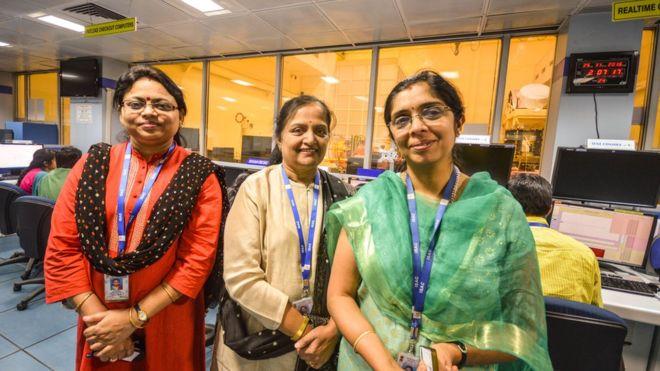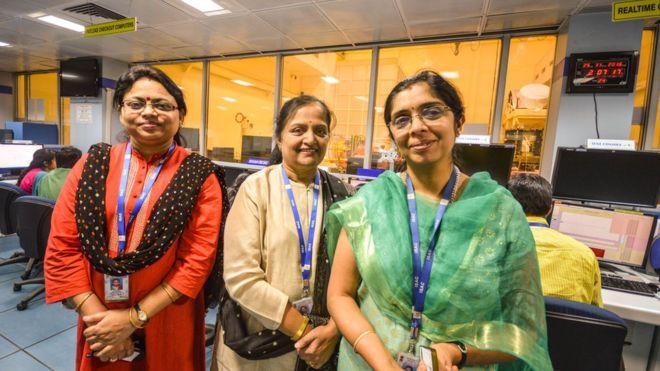 Blog
BlogMad about the menopause
“But they cannot be trusted with important decisions during the days when they have
periods”, he said. I was totally shocked and did not know what to say.
 Blog
Blog“But they cannot be trusted with important decisions during the days when they have
periods”, he said. I was totally shocked and did not know what to say.

So of India's senior academics
Image Credit: Aswin Sekhar
“But they cannot be trusted with important decisions during the days when they have
periods”, he said. I was totally shocked and did not know what to say.
The sentence was even more bewildering because it came from a renowned professor (who will remain unnamed in this article) in physics from a known university in Northern India. The discussion we were having was about gender imbalance in senior academia and about how very few female vice-chancellors and college principals we have in India in spite of having thousands of colleges, institutes and universities across such a large nation. As a very junior academic in the eyes of the hierarchical pyramid in the Indian system, he was not too pleased with my questions about these things!
I politely questioned him whether his analysis was a bit too unfair citing it was simply a normal biological process beyond a woman’s control. He adamantly replied saying it was not only just his decision but the majority of the selection committee (which were all men, by the way) had the same opinion about this irresponsible nature of women during their periods. He said women are good teachers but for important decisions at highest levels one has to consider inner aspects too. He further tried to rationalise his ridiculous stance by adding what if the day of convocation (or graduation) fell on the days of her period and then think about the plight of students having to receive degree from such an 'impure' person on such an auspicious event as graduation. He proudly proclaimed to me that he snarled at the committee during selection process stating vehemently that it will be spoiling the future of thousands of newly graduated students in the same year because the hands of the female vicechancellor handing out degrees would not be ‘sacred’ on those days. Barring entry of women on menstrual days to temples and kitchens is quite common in most parts of rural India and he was citing these examples to reinforce these arguments to the committee.
He elaborated that he was of the strong opinion that such committees have to uphold Indian cultural values, traditions and rituals without any compromise. Little does he know that no sensible modern Indian from the present generation considers these things as India’s core values or traditions by any measure. That his long rant on menstrual impurity had been approved by various other senior male academics of his generation sounded most disturbing to me. And it was even more disturbing when he gleefully pointed out that there were many VIPs (men) of his ilk on some of these top panels.
After hearing all this, I was not sure whether it was the heavy spice I was having in my meal or these statements from such a senior Indian professor – maybe both – which made my head dizzy. The photograph of the calm and peaceful face of Gandhi overlooking us in this Indian restaurant in Oslo (coincidentally named after Gandhi) made me even more uncomfortable. The visiting Indian professor probably did not even realise that such a conversation is deeply unpleasant at any occasion and even more insensitive when you talk in this way in front of the father of nation, someone who had a grand vision of equality and justice for everyone in India irrespective of caste, creed, gender, race or religion.
A few weeks back an Indian high court judge gave an open interview to media saying that the reason the peacock is India’s national bird is because it can produce offspring without having sex and thus it is a very divine and religious bird which does not sin. Essentiall, this judge seems to think that normal courtship with a female to reproduce is something disgusting and undesirable for male of the species. Once again, sensible and logical Indians consider these statements utter nonsense; this risible comment led to cartoons and satire on social media. But it does make clear how some Indians in powerful positions (and who in charge of extremely important decisions pertaining to life of both men and women) become a national embarrassment because of such 'dark ages’ attitudes and mindsets.
Coming back in full circle, the senior professor concluded the conversation by saying that there were at least two members in the male committee who supported this female candidate’s vice-chancellorship if and only if she has already passed her menopause. And he added that such discussions are pretty common in India amongst male colleagues when it comes to top female appointments in some institutions, especially in rural India. That is the time you realise that there are still some men who want to show supremacy over women by imposing their primitive attitudes on dress, make-up and code of conduct – thus restricting the entry of women to the top jobs, irrespective of their skills or competence or CV. This nonsensical menstrual stigma, even in educated circles, is just one of many deplorable examples.
The strong presence of women in both scientific and administrative sides of the recent highly successful Mars Orbiter Mission of Indian Space Research Organisation (ISRO) was celebrated nationally and globally. And it is appalling to think that there are still some men on top panels who refuse to leave behind their myths and dogma when it comes to gender parity in the larger picture of academia.
Recent surveys show that the number of female vice-chancellors in India is just about 3%, which is extremely low in direct comparison to gender ratios in India’s diplomacy, bureaucracy, military, police and political circles. Although I am reporting here merely a private and open conversation with a visiting senior academic at the dinner table, it does makes you ponder the larger issue of primitive mindsets and attitudes of some men when it comes to female appointments in general. Although science probes and solves many deep mysteries of the universe, it is clear that it does not seem to be able to solve or refine the attitudes of some senior academics in science in some parts of the world. We, still, have a long way to go in terms of achieving the professional gender balance metrics and gender sensitive positive mindsets practised in the Nordic part of the world! Who knows when that will happen!!!
If you would like to submit an article to A&G Forum then please go here.